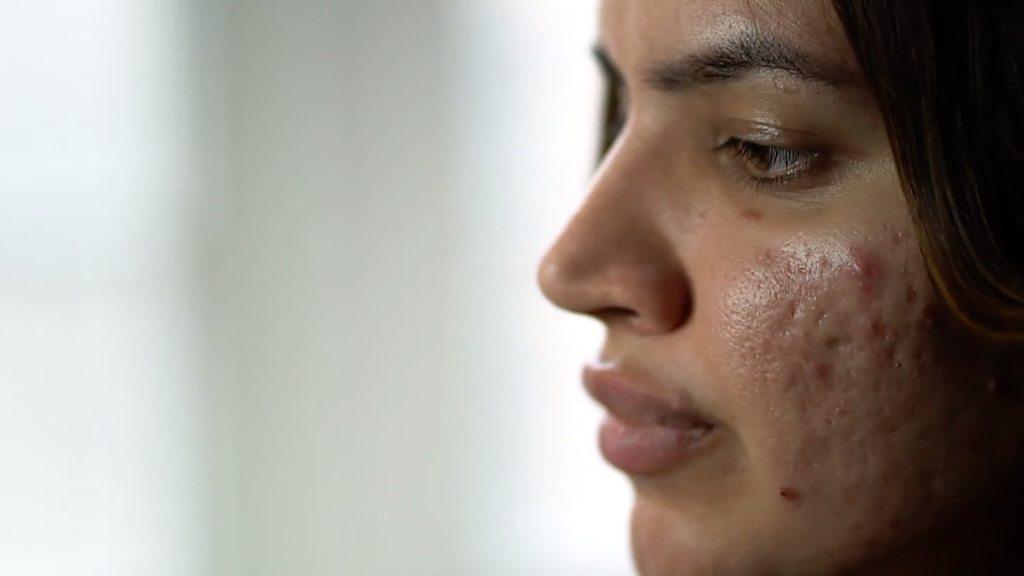TikTok: Teens educating themselves on skincare trends
- Published
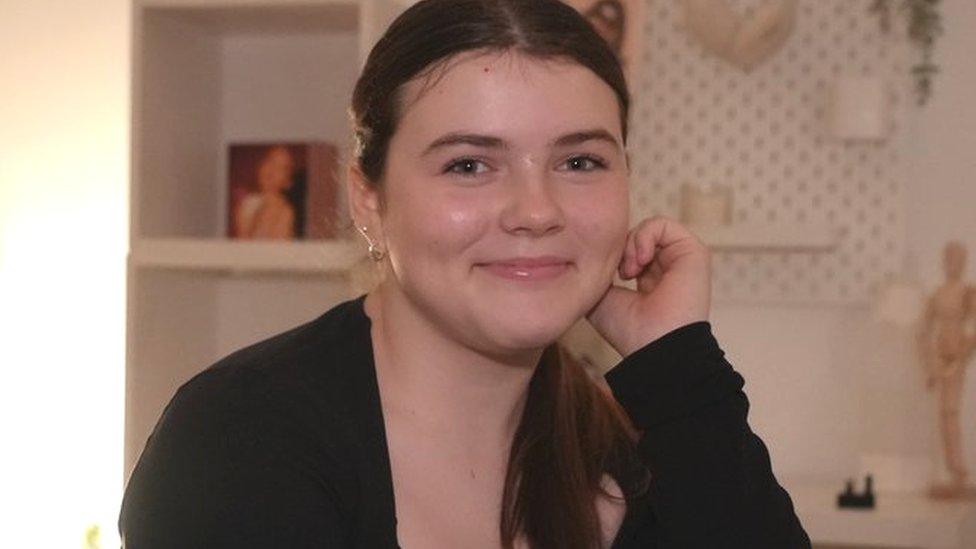
Martha started using skincare products after watching videos on social media
A skincare-obsessed 13-year-old is using social media to educate herself on the best products to use.
Martha is part of a growing trend of teens using skincare, which has seen children as young as eight wanting to use products meant for adults.
Skincare expert Caroline Hirons said it was "fantastic" that children were making "an informed, educated choice".
She said parents should not be "afraid to say no" to their children's requests for skincare.
It comes after the British Association for Dermatologists warned potentially harmful active ingredients found in some of these products made for adults, such as exfoliating acids, can provoke allergies or eczema in younger skin.
Martha, who lives in south Wales, was nine when she started using skincare products after watching videos on YouTube and TikTok during the Covid lockdowns.
She started with simple, cheap skincare products that are good for young skin, but when she saw products like Drunk Elephant and Glow Recipe being used by influencers and her friends, she wanted those.
Drunk Elephant's colourful products are sold in stores such as Boots and Space NK, and range from about £9.75 for a small 15ml pot of its popular "whipped cream" face treatment, to £89 for a 100ml tub of Polypeptide cream.
A lot of the products in these brands contain ingredients intended for older skin, like retinol or acids.
Drunk Elephant's particular popularity with tweens and teens meant that founder Tiffany Masterson had to tell "kids and tweens stay away from our more potent products that include acids and retinols" on social media.
"Their skin does not need these ingredients quite yet," she said.
Caroline Hirons helps advise teenagers and young people on how best to care for their skin
TikTok driving trend
Skincare expert and bestselling author Caroline Hirons is part of a growing movement of specialists taking to social media to educate and inform people about skincare.
The #deinfluencing trend has more than 1.3 billion views on TikTok alone and is being driven by increasing concerns about the impact of over-consumerism and targeted ads.
Caroline, who has 700,000 followers on Instagram, regularly appears on daytime TV shows and welcomed teenagers like Martha doing their research.
"Honestly, I think people getting into skincare is a good thing if it's done properly and with education," she said.
"Ultimately it's self-care and if these young people are taking a few minutes to do their face, that's fine. But in my mind... that, depending on your age, is literally maybe washing your face and using an SPF.
"Their skin is perfect. It's never going to be better than it is when you're a tween."
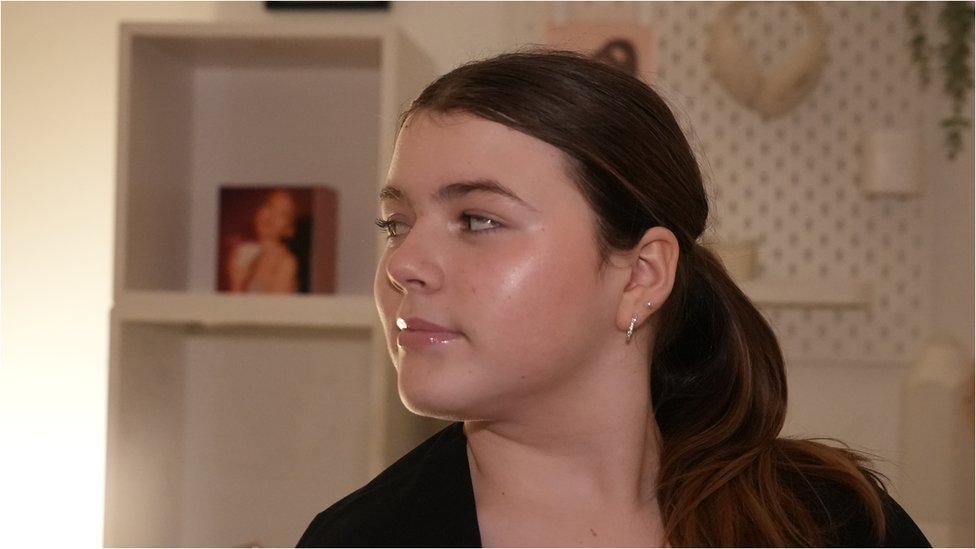
Martha says she checks ingredients in skincare before buying it
In Martha's case, she did some research and discovered products she was using were not necessarily the best for her sensitive skin.
Instead, she asked for cheaper brands with simpler ingredients for her 11th birthday in 2022.
"I see these 10-year-old girls at Sephora getting things they don't need," she said.
"I'd say read the ingredients. They are important because some things you see, you can't trust."
She said beauty and skincare were things her friends at school also talked about.
"First thing in the morning we all talk about what we had and what we want," she said.
Her mum Meinir said she was "over the moon" to see Martha taking her own initiative to educate herself.
"She's even telling me not to use that product because it's been tested on animals. I wanted to buy lipstick but she said, 'no mam you can't use that brand'."
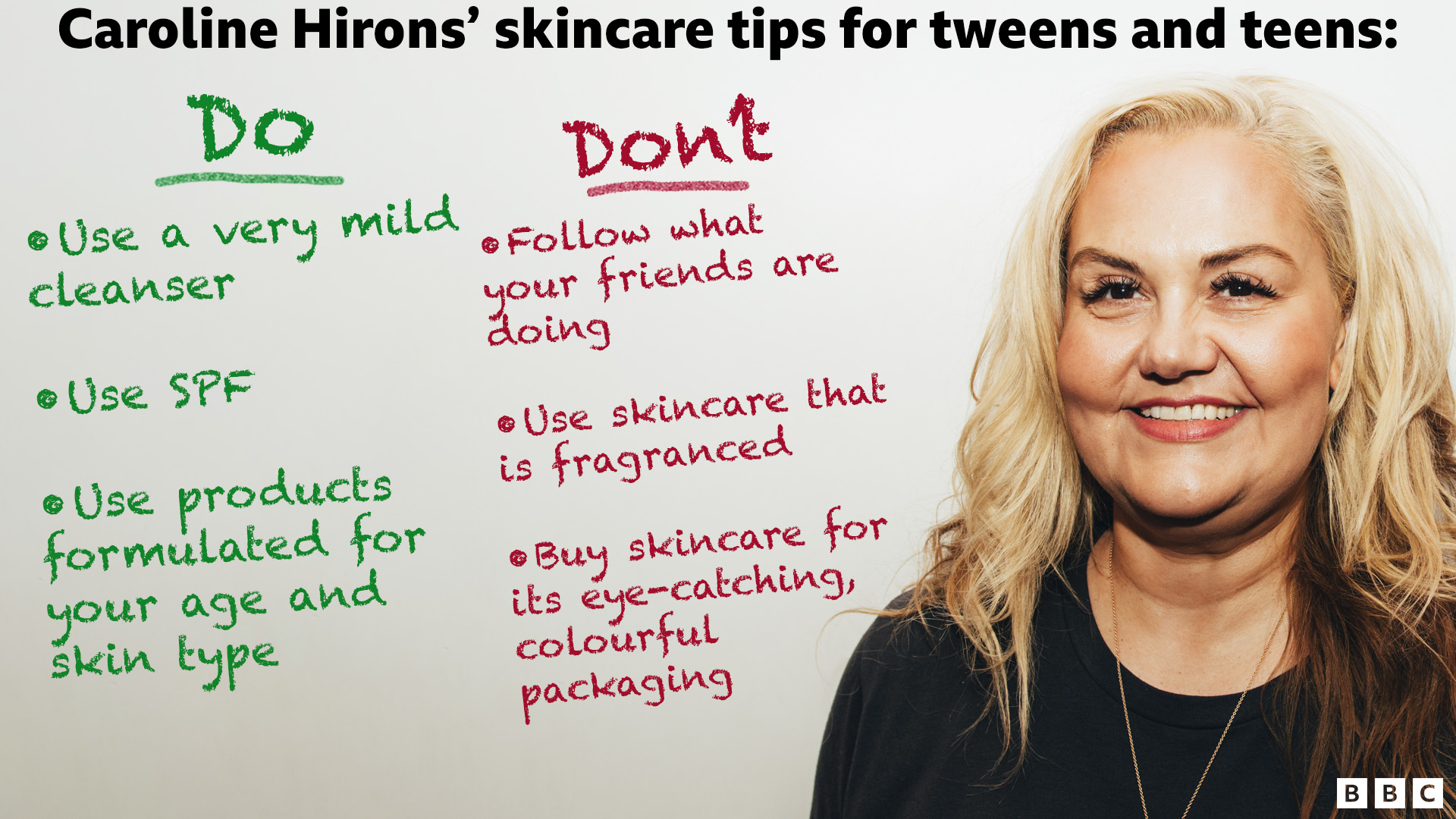
'Don't be afraid to say no'
Mum-of-four Caroline said she understood the social pressure tweens and teens are under but said parents should feel confident to say no to requests for expensive skincare.
"If someone's child is coming to them and says, 'I wanna buy this' and it's a retinoid or a vitamin A, or an acid, my first question would be, 'why? Can they tell you what problem they're trying to fix?'.
"If it's a teenager and they've done their research and they've got a good case for it, then listen to them, but don't be afraid to say no.
"It's not like if they said, 'I really want this pink vape', you're going to say, 'oh, it's nice, go on, then'. It's a vape, no."
Caroline added: "If my child had turned up with a £90 moisturiser, first I'd be concerned as to how they afforded it, but that's a separate matter, and then I'd probably take it back."
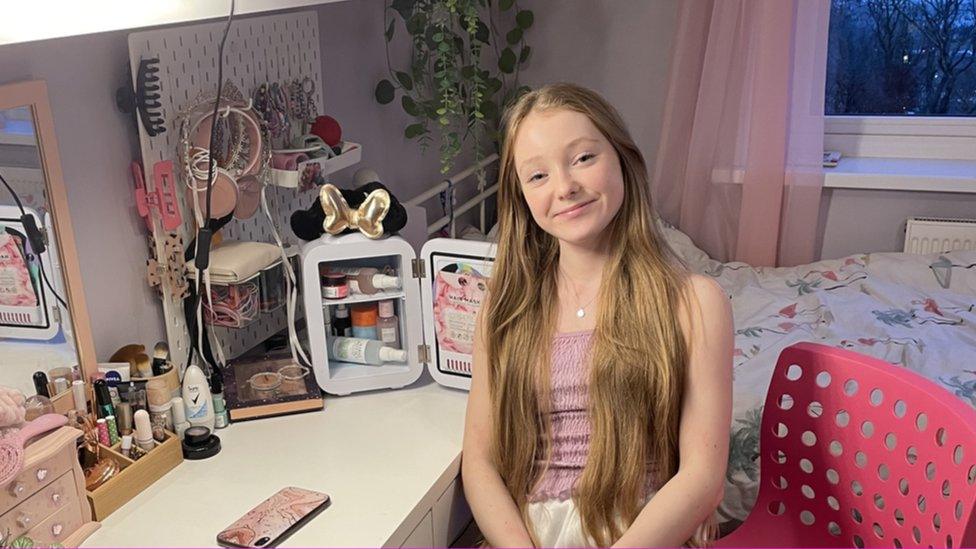
Elsa, 13, is also using skincare and uses a fridge to store it
Thirteen-year-old Elsa, also from south Wales, uses social media sites to educate herself on skincare.
She said many of her friends started using skincare products after seeing them on TikTok so she asked for similar brands for her birthday and Christmas.
But one of the products she used caused her skin to be irritated and red and she now researches what to buy.
"I like to look after my skin because it helps me feel more confident, and I like to go to bed feeling refreshed," she said.
"I hear it from TikTok and I go to SpaceNK and Boots and buy it online."
Lauren Josie Thomas, a marketing and events lecturer at the University of South Wales, warned the de-influencing trend could risk giving brands further marketing.
"You can almost guarantee that their year-on-year sales will continue to go up," she said.

PARANORMAL: Chilling ghost stories and words appearing on the walls...
UNMISSABLE DRAMA: When the Wolf is at the door, be very afraid

Related topics
- Published27 January 2024
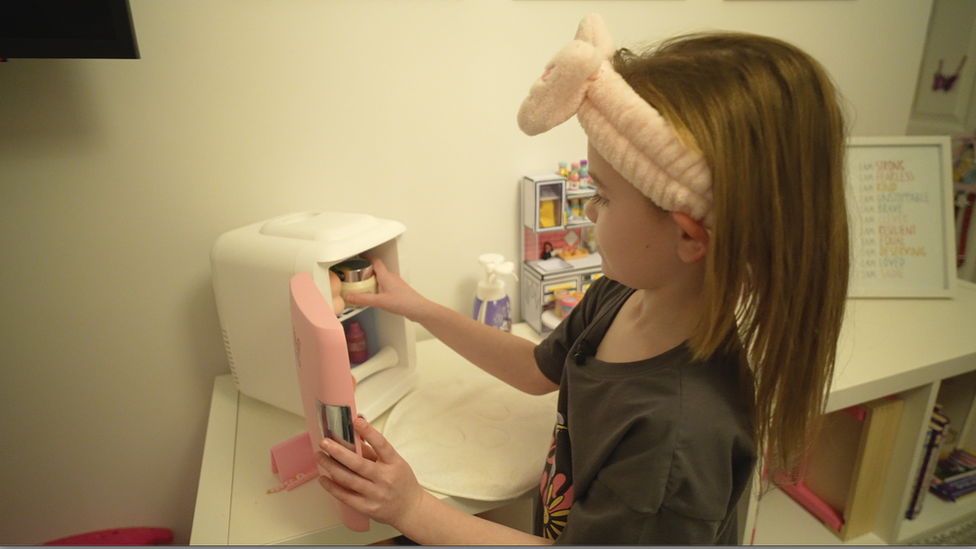
- Published10 June 2019
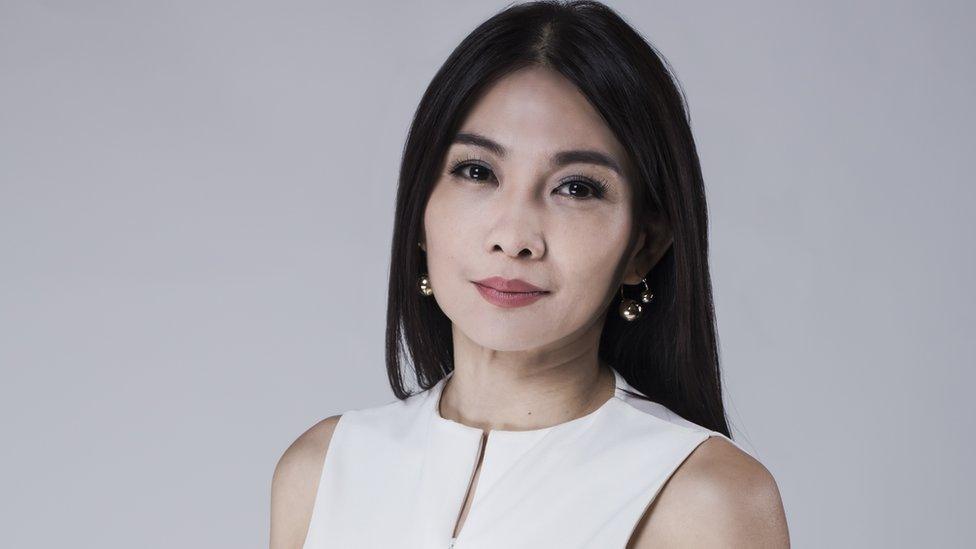
- Published9 November 2019
